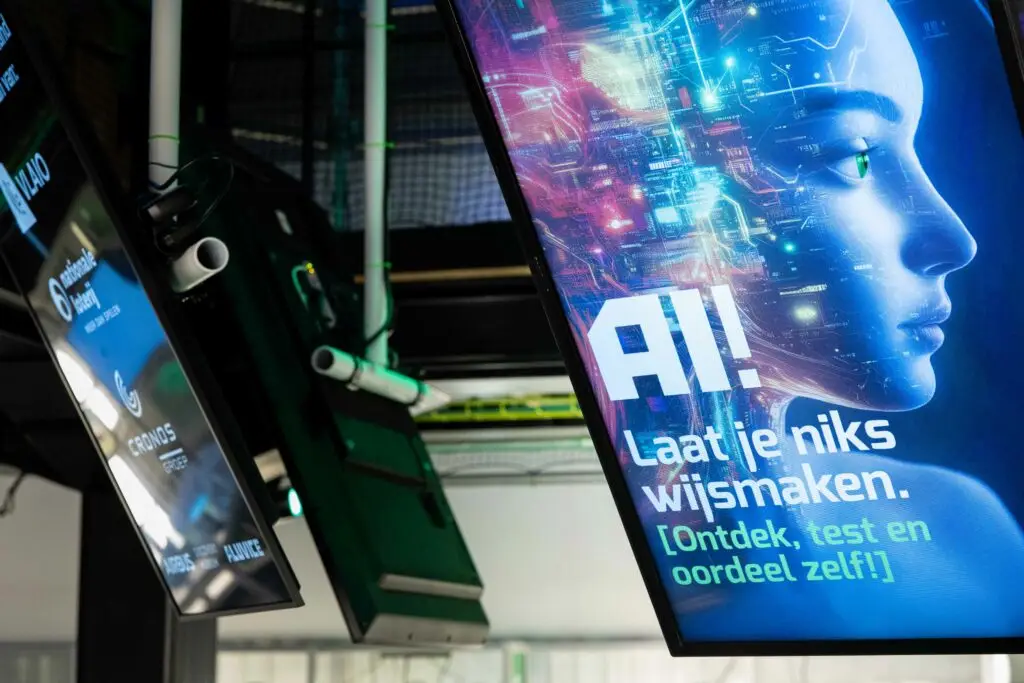
On April 9th, the European Commission reaffirmed its commitment to establishing Europe as an AI-friendly and innovative territory with the AI Continent Action Plan. Recognizing that the race for leadership is underway and understanding the potential consequences if the continent falls behind, the Commission aims to enhance the EU’s AI capabilities through a set of actions and policies organized around five key pillars. Let’s explore them.
1st Pillar: A Network of AI Factories
AI requires supercomputing, and supercomputing needs infrastructure. To support local startups, industry, and researchers in developing models and applications, numerous factories and gigafactories will be deployed. Already, 13 are becoming a reality and should be active by 2026, leveraging existing supercomputers.
Regarding the gigafactories, the plan is to set up five large-scale facilities equipped with approximately 100,000 AI chips (four times more than current AI factories) with the mission to train and develop complex AI models at an unprecedented scale and maintain the EU’s strategic autonomy in critical industrial sectors and science. Public and private investments will be leveraged for their creation, including through the InvestAI Initiative, which aims to mobilize €200 billion. Back in February, Commission President Ursula von der Leyen explained InvestAI as follows:
AI will improve our healthcare, spur our research and innovation and boost our competitiveness. We want AI to be a force for good and for growth. We are doing this through our own European approach – based on openness, cooperation and excellent talent. But our approach still needs to be supercharged. This is why, together with our Member States and with our partners, we will mobilise unprecedented capital through InvestAI for European AI gigafactories. This unique public-private partnership, akin to a CERN for AI, will enable all our scientists and companies – not just the biggest – to develop the most advanced very large models needed to make Europe an AI continent.
That is not all, however. To stimulate private sector investment in cloud capacity and data centers, the Commission will also propose a Cloud and AI Development Act. This Act aims to address the growing demands of AI applications while promoting innovation, interoperability, and a competitive internal market, with the goal of ensuring Europe’s technological sovereignty. This focus on strategic autonomy has been a staple of recent EU communication, as this objective can also be found behind the development of the Digital Euro by the European Central Bank or through the White Paper of the ReArm Europe Plan recently developed by the Commission for the development of pan-European defense capabilities.
2nd Pillar: The Data Union Strategy
Training AI requires access to large volumes of high-quality data. To address this, the Action Plan features the creation of Data Labs, which will bring together and curate large, high-quality data volumes from different sources in AI factories. To achieve this, the Commission will rely on the Data Union Strategy, which is set to launch in the third quarter of 2025. This strategy aims to increase data availability, streamline data rules, address international data flows, and create an internal data market. It will also tackle barriers to cross-border data use, aiming to create a coherent legal framework and robust data infrastructures to scale up AI development and enhance the EU’s global competitiveness.
3rd Pillar: Development of AI Skills
Despite the concept itself, successful artificial intelligence depends on talented people. To facilitate the local and international recruitment of highly skilled AI experts and researchers, five tactics were highlighted in the Action Plan’s factsheet:
- Form partnerships to recruit internationally through different initiatives such as the Talent Pool and the Marie Skłodowska-Curie Action ‘MSCA Choose Europe‘, which are existing programs to either facilitate recruitment or post-graduate education.
- Boost AI skills and uptake via the AI Skills Academy, giving students, specialists and others the skills for developing, deploying and applying AI models and applications in their field.
- Offer AI fellowships to top students, researchers, and AI professionals through the same academy.
- Pilot a generative AI-focused degree to prepare the next generation of AI specialists.
- Support reskilling through European Digital Innovation Hubs (EDIHs), shops supporting companies and public institutions to respond to digital challenges.
4th Pillar: Development of algorithms and adoption
The Commission noted that despite the current buzz around AI, only 13.5% of companies in the EU have adopted it. To support adoption in EU strategic sectors, another strategy will be launched by June at the earliest, this time called the Apply AI Strategy. In more detail, it aims to enable European companies to be global AI front-runners, increase the quality of services in the public sector, and foster the integration of AI technologies into strategic sectors such as advanced manufacturing, aerospace, security and defense, energy, environment and climate, pharmaceuticals, biotechnology, robotics, and many others.
5th Pillar: Simplification of the Rules
This last pillar is self-explanatory. European AI is competing against less regulatory environments, as the EU AI Act, a regulation for the use of artificial intelligence in the EU, has been active since 2023. While the Commission doesn’t want to sacrifice its normative power over this, it is aware that the right environment must be created to allow investors and entrepreneurs alike to scale their activities in the Union. The AI Act Service Desk will hence be launched to support them as well as ensuring compliance with the AI Act, serving as a central point of contact and hub for information.
Diving Deeper within the AI Continent Action Plan
If you want to learn more about the AI Continent, the Commission has been compiling numerous supporting materials:
Ecu Radio needs your support
Ecu Radio is an independent news website and podcast show, run full-time by a single dedicated contributor (for now). Support our work, get exclusive perks and help keep us going, starting from only 3 € per month.
Let's unleash Europe's potential together!
Click here to support Ecu Radio

